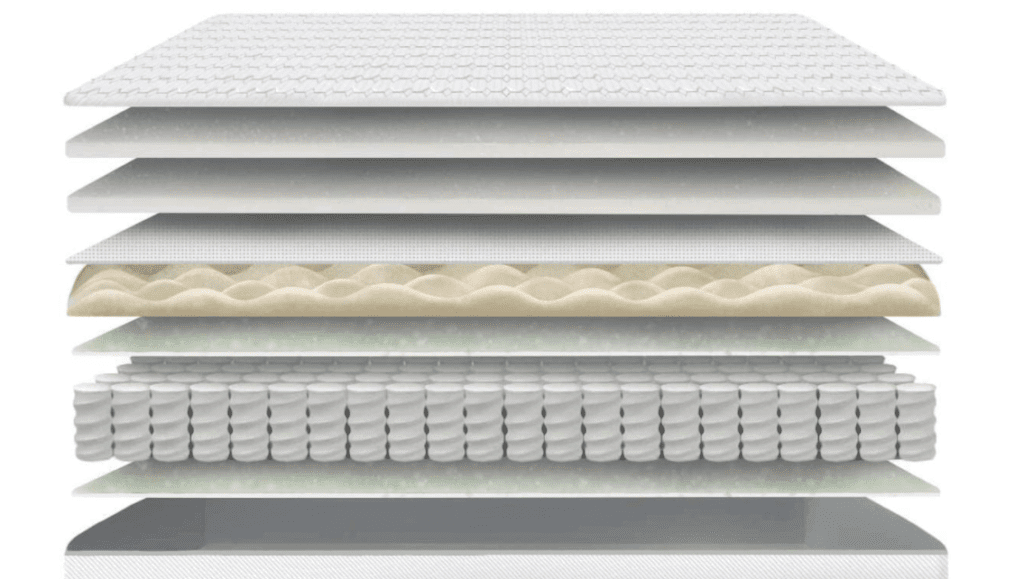What Causes Restless Sleep?
Restless sleep is far more common than you may believe. It can be caused by various things, ranging from physical to mental conditions. In this article, we’ll explore some of the most common causes of restless sleep.
There are several reasons why you might have a hard time sleeping
There are many reasons why you may be having a hard time sleeping. Physical and mental health conditions can cause restless sleep, lifestyle factors, or an uncomfortable environment, to name a few. Knowing the difference between the causes of restless sleep and symptoms is essential to manage your sleeplessness with the most effective techniques.
Restless sleep can be caused by physical and mental health problems such as depression, ADHD, anxiety disorders, or chronic pain. Lifestyle factors such as alcohol consumption, smoking, or excessive caffeine intake can also contribute to sleep restlessness. Lastly, environmental factors like noise pollution or an uncomfortable mattress can also lead to restless sleep.
1. Stress and anxiety
Whether it’s the stress of a demanding job, the emotional strain of a relationship, or the psychological toll of depression and anxiety, many things can interfere with our sleep. Stress is one of them. Stress can be caused by external factors—like work or relationship issues—but internal processes like worry, rumination, and agitation can also cause it.
Stress has been linked to poor sleep in several ways:
- Insomnia: People who feel stressed may not fall asleep as quickly or stay asleep as long as they would like. They may wake up at night and have trouble going back to sleep or experience early morning awakenings.
- Poor quality sleep: People who feel stressed tend to get lower quality sleep (less deep sleep), even if their total amount of time sleeping doesn’t change much. This is due to increased activity in areas of your brain associated with stress responses even when asleep.
- Fatigue: Lack of quality sleep leaves people tired during the day and less able to cope with stressors, making them more likely to feel stressed at bedtime again that night—and so it continues!
2. Pain
Pain is a common cause of restless sleep. Pain can make it difficult to fall asleep or stay asleep. It can also wake you up from a deep sleep. Pain may also cause you to change your sleeping position and wake up earlier than you want, resulting in fragmented sleep. Any pain can have these effects on your sleep. Chronic pain is defined as pain that lasts for more than three months. The most common types of chronic pain are headaches, arthritis, and back problems.
3. Caffeine and alcohol
Caffeine, a stimulant in coffee, energy drinks, tea, dark chocolate, and even some medications, can stay in your system for up to six hours. So if you have a cup of coffee at 3 p.m., that Caffeine still affects your brain waves; come 9 p.m., Caffeine will keep you awake when your body isn’t ready to sleep and interrupt your sleep cycle when you drift off into dreamland. For better sleep hygiene and more extended periods of uninterrupted slumber from the onset of bedtime through the sunrise, eliminate Caffeine from your diet in the afternoon each day.
Alcohol may initially make you sleepy, but it’s harder for our bodies to digest than foodstuff or water. Studies find that alcohol (and other liquids) makes us wake up more frequently throughout the night as our bodies try to clear it out. This can lead to fatigue since we’re not getting quality sleep while our bodies are processing alcohol instead of resting during those nighttime hours.

4. Medications
If you take medications, those could be causing your restless sleep. Some medicines can make it difficult to get quality sleep. These include:
- Prescription stimulants (methylphenidate, amphetamine-dextroamphetamine)
- Hormones (thyroid hormone replacement)
- Antihistamines
- Blood pressure medications that contain a diuretic or beta-blocker
- Asthma inhalers (albuterol)
- Cough and cold medicines that contain a decongestant, such as pseudoephedrine or phenylephrine
- Certain antidepressants (tricyclic antidepressants, monoamine oxidase inhibitors, selective serotonin reuptake inhibitors [SSRIs], venlafaxine [Effexor])
- Steroids (prednisone)
- Thyroid medications (liothyronine [Cytomel])
- Birth control pills
5. Unhealthy sleep habits
- Get your sleep environment right. Your room temperature should be cool, around 65℉ (18.3℃). It should also be as dark as possible. Try an eye mask if you can’t achieve darkness with blinds or curtains. To block out noise and light, use earplugs too.
- Invest in a comfortable mattress and pillow. The right mattress will support your back by keeping it straight when lying on your side or back. A soft mattress is best for side sleepers; a firmer one is better for back sleepers. When choosing a pillow, make sure it’s not too high or low to keep your head in line with the rest of your body
6. Depression and other mood disorders
If you have depression or another mood disorder, you may be more likely to experience difficulty sleeping, especially in the evening. These mental health conditions can cause restlessness and overwhelming negative thoughts that interfere with sleep quality.
According to the National Sleep Foundation (NSF), about 50 per cent of people who suffer from depression experience insomnia. This sleep problem can make it difficult to fall asleep or stay asleep throughout the night. This condition may also contribute to increased daytime fatigue and sleepiness, making staying awake during the day harder. In addition to contributing to depression, poor sleep patterns can worsen symptoms.
7. Other medical conditions
Your sleep problems may be a sign of an underlying health condition. If you experience other symptoms and difficulty sleeping, speaking with your doctor is a good idea. For example, if you have any of these symptoms, it’s time to see your doctor:
- loud snoring and daytime fatigue – could indicate sleep apnea
- sudden falling asleep during the day – could indicate narcolepsy
- tingling or numbness in the legs during the night – could indicate restless leg syndrome
- heartburn or acid reflux – usually occurs at night when stomach content makes its way back up into the oesophagus
What can you do to ease your restless sleep symptoms
You can do a few things to ease your restless sleep symptoms and get a better night’s sleep. These include:
-
Establishing a regular sleep schedule – A regular sleep schedule is one of the most important things you can do to get quality sleep. This means going to bed and waking up simultaneously each day, even on weekends.
-
Practising relaxation techniques before bedtime – Relaxation techniques, such as yoga, meditation, and deep breathing exercises, can help ease your anxiety and make it easier to fall asleep.
-
Exercising during the day – Exercise can help improve your sleep quality by reducing stress and promoting relaxation. However, it’s important to avoid exercising too close to bedtime as this can make it more difficult to fall asleep.
-
Upgrade your mattress to something more comfortable – It could be time to upgrade if you’re uncomfortable with your mattress. A good quality mattress can make a big difference in your sleep quality.
-
Adjust your sleep environment – Creating a dark, quiet, and cool environment in your bedroom can help you sleep better. Blackout curtains, white noise machines, and ceiling fans can all help create an ideal sleep environment.
-
Talk to your doctor – If you’re still struggling to get a good night’s sleep, it may be time to talk to your doctor. They can help you rule out underlying health conditions and recommend other treatment options.
Final thoughts
Restless sleep is an actual condition, and you should take it seriously. It can be a symptom of an underlying health condition, so it’s important to talk to your doctor if you struggle to get a good night’s sleep. You can also do a few things to ease your symptoms, such as establishing a regular sleep schedule and practising relaxation techniques. Creating a comfortable sleep environment can also help you get better sleep. If you’re suffering from a restless sleep, you must go over your entire life with a fine-tooth comb and see what is causing it.
- Is your job stressing you out?
- Are you not getting enough exercise?
- Is your diet full of Caffeine and sugar?
Once you identify the root cause, you can look for solutions. If an underlying health condition causes your sleep problems, your doctor will likely recommend treatment options that can help ease your symptoms. You can also do a few things to improve your sleep quality, such as upgrading your mattress and creating a comfortable sleep environment. Don’t suffer in silence if you struggle to get a good night’s sleep. Talk to your doctor about your options and look for ways to improve your sleep quality. You can get the restful night’s sleep you deserve with a little effort.



